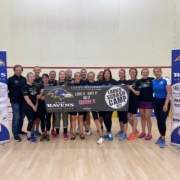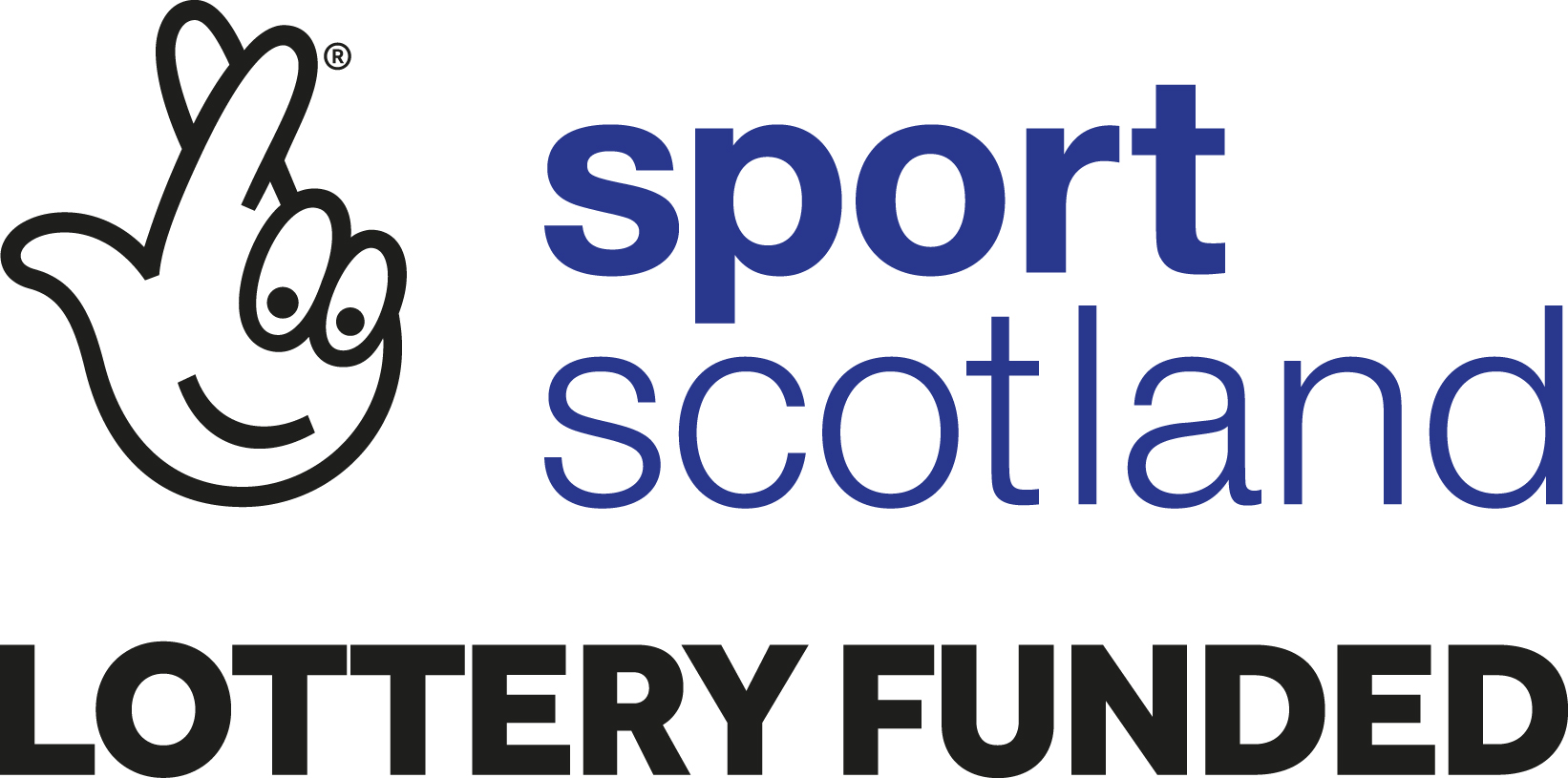Meteoric rise of women’s sport fuels surge in community led squash programmes
With Scottish Women and Girls Week now in full swing, we reflect on the meteoric rise of women’s sport in recent years, and the impact this is having on women’s squash at grass roots level. The Scottish Women and Girls in Sport Week is a sportscotland programme of activity to encourage more women into sport and physical activity, raise awareness of those regularly taking part at all levels, and address the barriers that lead to lower activity rates among women.
According to BBC Sport, women’s sport smashed audience records across the UK in 2021. Future Sport, working with the Women’s Sport Trust, estimates an audience of 51.1m was reached in 2021, growing from 46.8 m in 2019. Despite the restrictions of the pandemic in 2020, viewer figures still managed to hit 27.3 million.
The rising popularity in women’s sport was galvanised during a highly successful Women’s European Football Championships, culminating in a packed Wembley stadium for the final between England and Germany, and for the first time in its history, the Commonwealth Games featured more women’s events than men’s.
In Scotland, the Government has recognised the need to back the growth of women’ sport, as well as encourage more women and girls to participate in sport and exercise. This has been seen in the form of the Sport and Active Living Budget which doubled in 2021 to £100 million. The impact of this investment is already being seen across the country.
Squash is one of a number of sports that has witnessed a resurgence at grass roots level, with the number of women and girls participating in the sport increasing by up to 70% in recent years. The Silver and Bronze medals won by squash’s elite at the World Doubles in Glasgow and the recent Commonwealth Games in Birmingham, is inspiring the next generation of squash pros, as well as creating a surge in interest at club and community level.
Across Scotland, a range of inspiring community led initiatives are capturing the imagination of women and girls and helping to create a gender balanced community of players at grass roots level. For example, the Oban Ravens is a women’s only team started two years ago coach Colin MacNiven. Featuring a squad of 22 women from the ages of 25 to 55, the Ravens, complete with their own branded kit and logo, compete at tournaments and leagues across the country.
Nicola Morgan (Team Captain) said: “We wanted to set up a community of female players who could play and enjoy each other’s company, without any pressure or expectation. We started by hosting weekly training sessions where anyone could come and try the game. This provided an opportunity for women to meet and get involved in a healthy activity, which was in great demand following 18 months of lock downs.
From there, we developed a squash team, backed by local sponsors, that provided a focal point for players who wanted to take their game to the next level. What we have learnt is that Oban Ravens doesn’t only provide a source of entertainment and exercise, it provides our players with a true sense of belonging, identity and pride.”
Ailsa Polworth, club manager at the Inverness Squash and Tennis Club, helped launch the club’s own all women’s team called the Red Kites in response to rising demand.
Ailsa said: “We knew that to attract more women and girls into the game, you need a community of female players already playing at the club. It’s a case of numbers breed numbers, as no one want to arrive and immediately feel alone and isolated. So we put out an advert locally to invite women and girls of all ages to free squash sessions. The response was overwhelming. Each week we run training sessions and more and more people are turning up.
The great thing is there is no need to become a club member to join the Red Kites, so there are no barriers. It’s a great atmosphere – we get girls as young as 15 coming along, and women in their 50s who have never played the game. We also want to create a clear pathway for younger players. The Red Kites is a springboard from school into the club, where they can start playing competitive squash. It’s a big financial and time commitment joining a squash club, so the Kites allow women and girls to get involved free of charge.”
Meanwhile up in Sutherland, a parent led community squash initiative is gathering momentum. The Sutherland Junior Squash Club was started last year by father of two Frank MacCulloch after introducing his own children to the sport.
Frank said: “At first it wasn’t my intention to create what turned out to become a thriving junior squash programme in Sutherland. After trying squash during a trip to Center Parcs, my kids wanted to play at home, so I teamed up with a friend and we organised a few squash sessions. Word spread quickly and I started getting calls from other parents who wanted their children to get involved. Between May and June 2021, we ran five formal squash taster sessions, with up to 37 children playing, over half of which were girls. Before long we were running weekly squash sessions every Saturday between 12.30-5pm.
More recently we secured funding to get coaches involved with the sessions. We have a female coach from the Inverness Squash and Tennis club who runs some our sessions. Having female role models is important to inspire the next generation of women and girls, and we are seeing lots of girls of all ages signing up to our sessions as a result.”
Maggie Still, CEO of Scottish Squash reflects on the growth of the women’s game in Scotland. She said: “It is such an exciting time for women’s sport, and it is fantastic to see the huge growth in participation and profile across all women’s sport and specifically in squash. Here we have heard of inspirational coaches and club managers, listening to the specific needs of women in sport and making a difference, encouraging more and more women and girls to take part. Great job and let’s keep the momentum going!”



